02:22
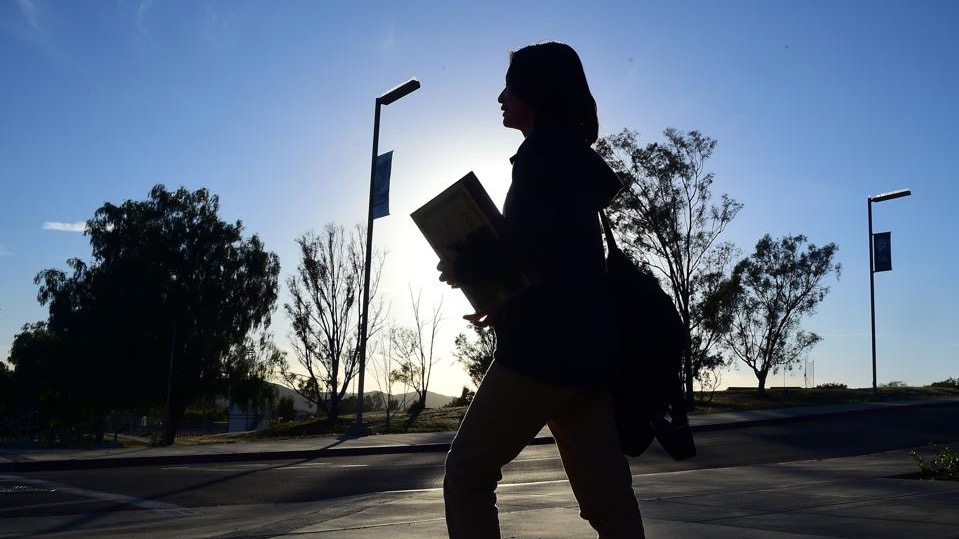
Huo Dawei, a freshman at the University of Chicago, has been attending online classes in Beijing since the fall semester began in late September. This March, the 19-year-old, a senior high schooler in Massachusetts back then, became one of the first international students to return to China after the coronavirus pandemic hit the U.S.
"I built a mathematical model together with my classmates, based on the number of 200 confirmed COVID-19 patients in Massachusetts in early March," said Huo. "We estimate that by May, Massachusetts alone would see around 130,000 cases and nationwide there would be over a million because transmission rates for infectious diseases are fairly predictable, doubling every six days, and also the core philosophy the U.S. has in fighting coronavirus is 'flattening the curve.'"
He bought one of the last few direct flights back to Beijing days before his school closed. Social distancing, remote learning, working at night and sleeping during the day became the new normal for him and his peers. Moreover, they couldn't see an end to these tough times, as the pandemic continues to unfold amid souring China-U.S. ties in academia long before COVID-19 hit.
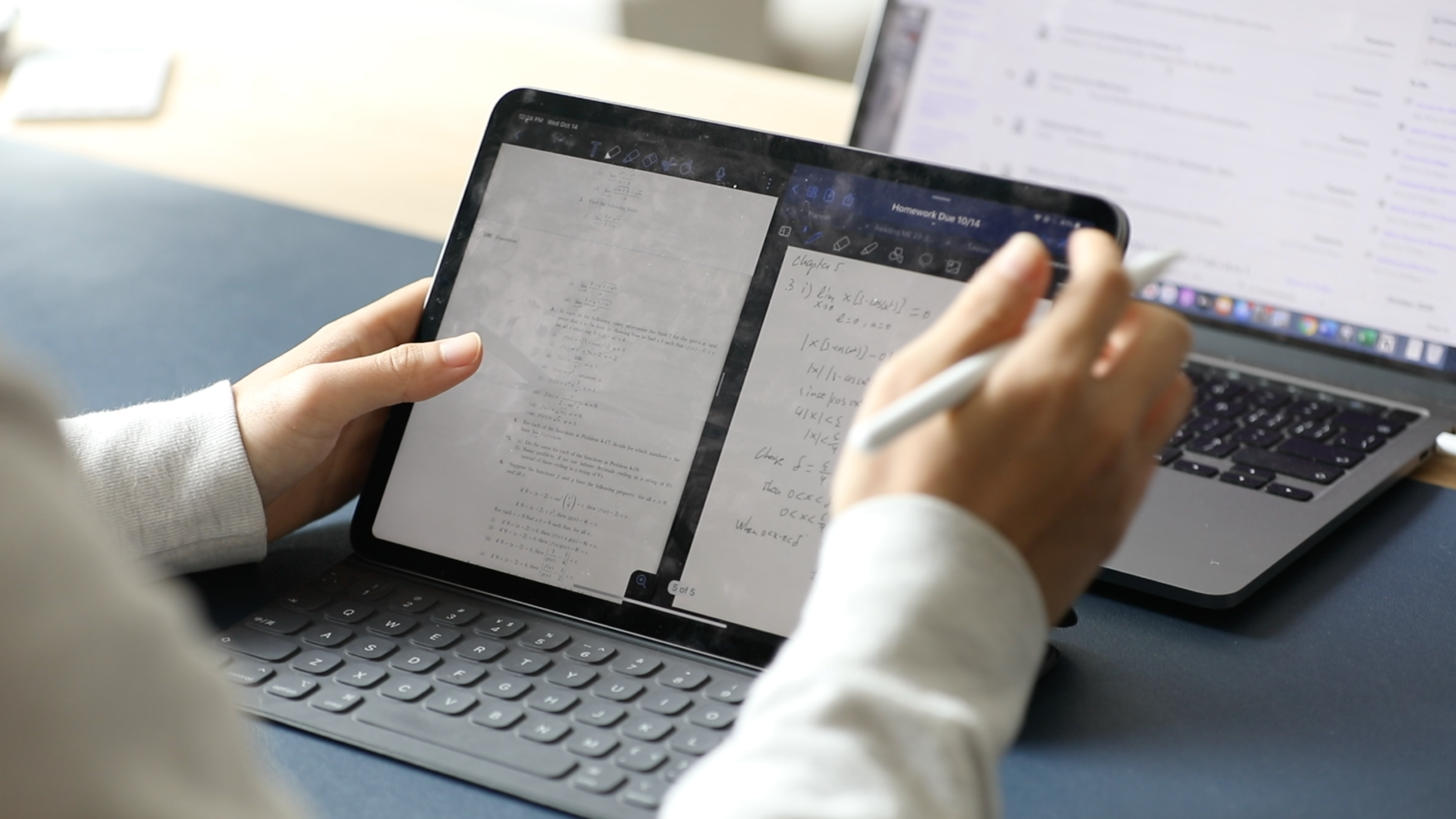
Huo Dawei is doing mathematics during an online class in Beijing, China, October 14, 2020. /CGTN
Huo Dawei is doing mathematics during an online class in Beijing, China, October 14, 2020. /CGTN
Stuck in limbo, Huo wanted to set up a physical space where students like him could have a better learning environment in addition to a social life. "I was mulling over a 24-hour place where young people mired in the gridlock could study on workdays and attend group activities like card games and jigsaw puzzles over the weekend," Huo told CGTN.
This idea coincided with that of Li Zhenpeng, who was admitted into the University of Pennsylvania earlier this year. Together they leased an office space in Zhongguancun – home to the city's tech startups and best schools – spruced up the place and posted pamphlets online. They call it "Zoom Center," in a nod to the popular telecommunication software that is being widely used during the pandemic.
"It's both a study lounge and an activity center," Li noted. They currently have 45 members who regularly come to review their lessons, exchange the latest academic information, and also express their concerns about whether they can eventually study in the U.S. and when.
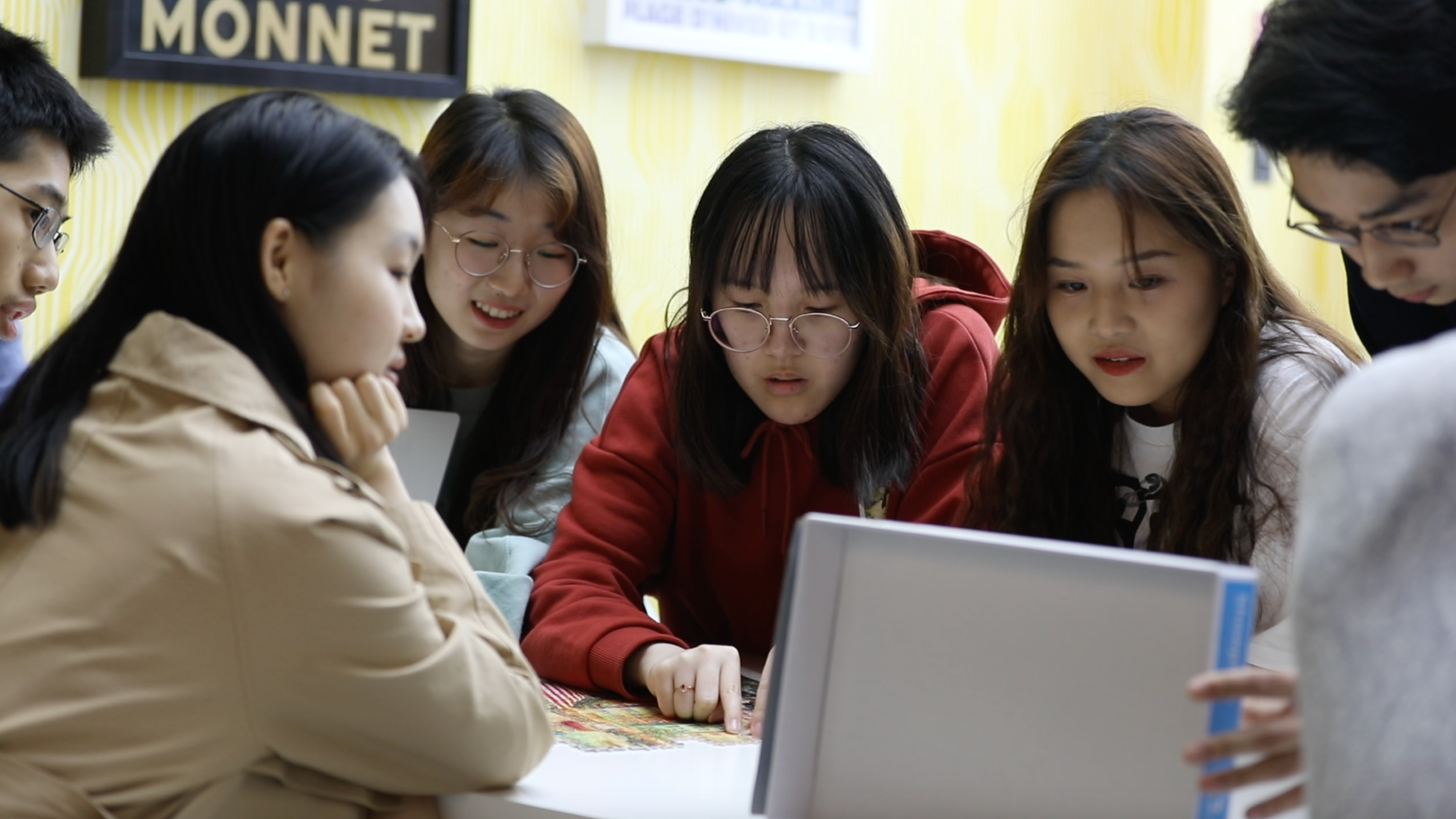
Chinese students stuck in limbo are playing a game at Zoom Center in Beijing, China, October 14, 2020. /CGTN
Chinese students stuck in limbo are playing a game at Zoom Center in Beijing, China, October 14, 2020. /CGTN
For these Chinese students headed for U.S. campuses, 2020 is a typically tough year. Apart from COVID-19 lockdowns that have restricted global movement, Beijing-Washington relations have further deteriorated amid crippling trade conflicts and a looming tech decoupling. Four decades of engagement is fast becoming a relic of a bygone era, giving way to belligerence and uncertainty.
Education, which is supposed to be free of politics, has become the latest battleground between the two powers. Starting February, the Trump administration sought to reduce overstays by foreign students, followed by a plan to deport Chinese graduate students majoring in concentrations deemed crucial to national security, and then sweeping restrictions to some 1.5 million international student visas. In 2019, nearly 400,000 Chinese students were enrolled in U.S. universities, making up over a third of all its international students.
Yang Zeyuan, another student at UChicago, jokingly calls himself a "refugee" of studying abroad, since he's one of many people who are waiting for approval to study in the U.S.
"It's difficult to get an interview, and what's worse, even if you get it, the embassy will scrap it at any time," said Ma Liwei, who had just received a new Form I-20 from New York-based Rochester University. As the processing of student visas slowly resumes, his concern is common among Chinese freshmen attending U.S. universities.
Sheng Yunhan, a Zoom Center organizer in eastern China, told CGTN that he was no longer checking the website of the U.S. Consulate in Shanghai. "If there's an interview opportunity, they will let me know." The 18-year-old freshman majoring in mathematics at UChicago is weighing his future plans. "I had planned to seek further education or work in the U.S. upon graduation, but now I'm reconsidering. Many Chinese companies, especially in the hi-tech sector, are doing quite well. Recently I found several jobs posted by Huawei to be very interesting."
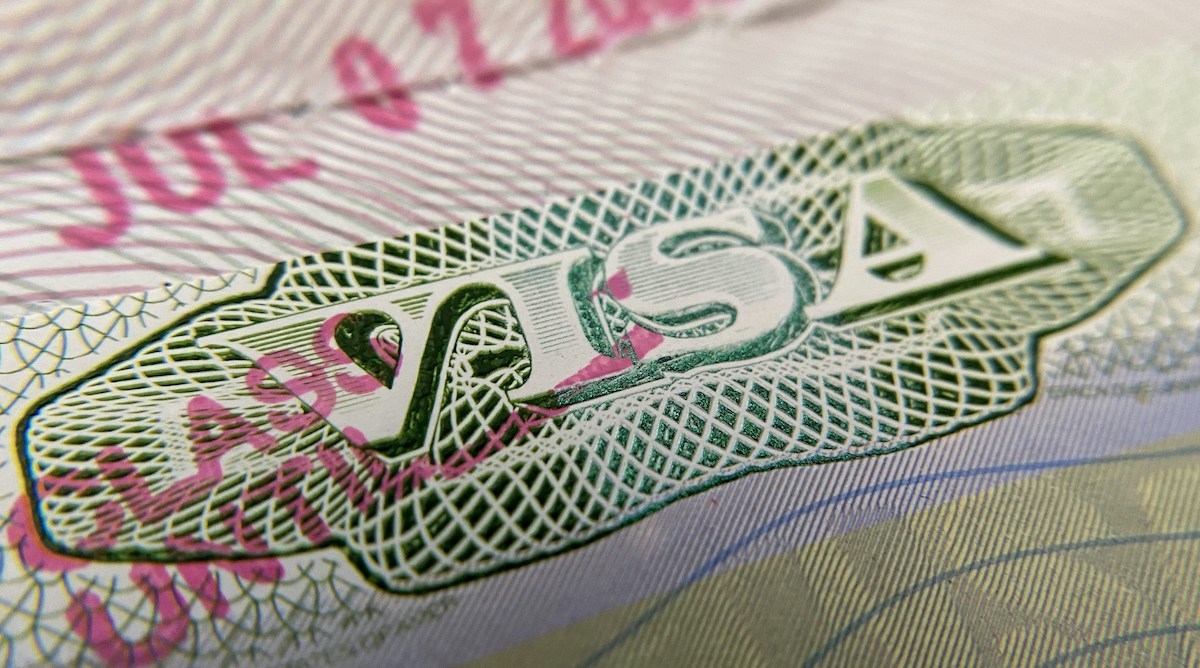
A visa stamp in a foreign passport. Many Chinese students in the U.S. have had their visas revoked. /AFP
A visa stamp in a foreign passport. Many Chinese students in the U.S. have had their visas revoked. /AFP
Over the past decade or two, China has come a long way in both higher education as well as research and development. The booming development of tech firms is attracting international students back to China with tantalizing positions, especially now that the confusing patchwork of policies from the White House spells broader doom for international students.
A sophomore in applied mathematics and economics, Han Tianyang is staying in the U.S. since he received an internship offer on Wall Street. "Besides the offer, I'm afraid I couldn't return once I left for China, so I chose to stay." Working in this bellwether of the world's stock markets, he sensed how pandemic exacerbated the involution of the financial sector. "I need to think over whether to cling to this 'old money' occupation after graduation," he said.
Despite all these headwinds, these young adults haven't changed their minds to study abroad. They said they still want to experience a different campus culture and an international education because most American professors don't judge their students based on politics and education knows no borders.
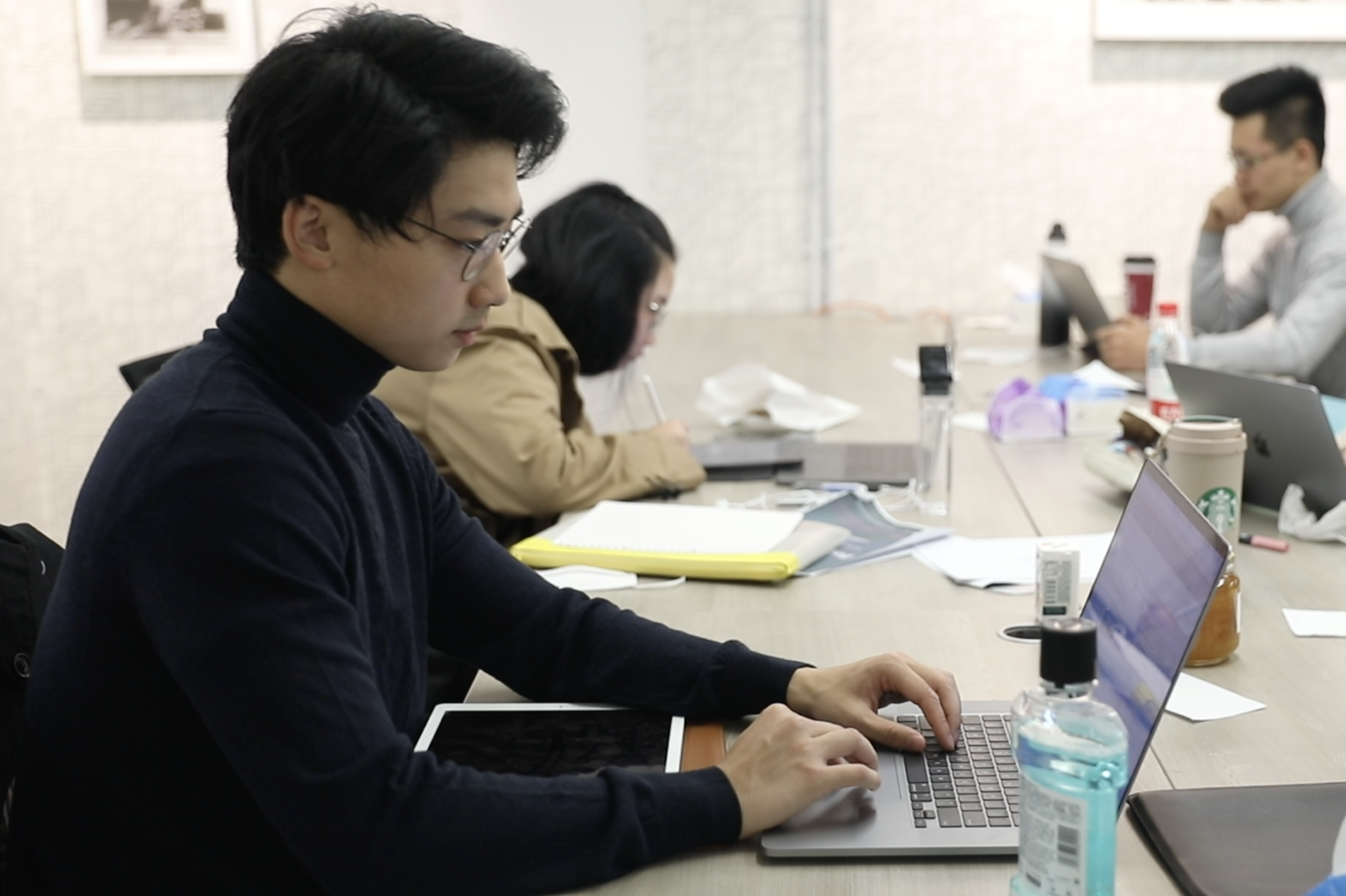
Lu Feng is taking an online class at Zoom Center in Beijing, China, October 14, 2020. /CGTN
Lu Feng is taking an online class at Zoom Center in Beijing, China, October 14, 2020. /CGTN
"When one of my professors found out that I have to get up at 3:00 in the morning to attend his writing class, he said, 'You don't need to take this class. I'll find time to give you one-on-one classes on Friday,'" said Wang Xiaochen, a freshman of the University of Pennsylvania who's currently studying at the Zoom Center.
Amid the COVID-19 upheaval, these young people have learned that they have to make the best of things – perhaps one of the few good things to have come out of the pandemic.
Huo launched an app to simulate U.S. middle school classes for teenagers after discovering that many parents who had planned to send their children to study abroad weren't as eager anymore given the pandemic situation in the U.S. "I hope the app can offer an alternative for these families. Huo calls it "New Wave Class" in Chinese since, in his eyes, these teenagers are a younger and more decisive generation.
Article written by Wang Xiaonan
Videographer: Wu Jinjing
Video editors: Chen Ziyue, Wang Zeyu
Wang Xuejing also contributed to reporting.